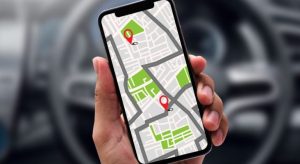Benefits of Having a GPS Fleet Tracking System in Vehicles in the UK
The transportation and logistics industry is the backbone of the UK economy, ensuring the seamless movement of goods and services across the nation. As businesses continue to seek efficiency and improved customer service, one technological advancement that stands out is the GPS fleet tracking system. This technology has revolutionized the way fleet operations are managed, providing numerous benefits that extend beyond mere location tracking.
Benefits of Having a GPS Fleet Tracking System in Vehicles in the UK
Enhancing Operational Efficiency
At the core of a GPS fleet tracking system is its ability to provide real-time location data of vehicles. This feature is crucial for enhancing operational efficiency in several ways. Fleet managers can monitor the exact location of each vehicle, allowing them to optimize routes and avoid traffic congestion.

This not only saves time but also reduces the fuel consumption, leading to significant cost savings. Moreover, real-time tracking helps in better planning and allocation of resources, ensuring that each vehicle is used to its full potential.
Improving Driver Safety and Accountability
Driver safety is a paramount concern for any fleet operator. GPS tracking systems play a pivotal role in promoting safe driving practices. By monitoring driving behavior, such as speed, harsh braking, and rapid acceleration, fleet managers can identify risky driving patterns and take corrective measures. This could include providing additional training or implementing incentive programs for safe driving. Furthermore, the accountability introduced by knowing that their driving is being monitored encourages drivers to adhere to safe driving standards.
Reducing Fuel Costs and Environmental Impact
Fuel is one of the largest expenses in fleet management. A GPS fleet tracking system helps reduce fuel costs through route optimization and minimizing idle times. By selecting the most efficient routes, vehicles spend less time on the road and consume less fuel. Additionally, reducing unnecessary idling not only cuts down fuel costs but also lowers the fleet’s environmental impact. In an era where sustainability is increasingly important, this reduction in carbon emissions is a significant benefit.
Enhancing Customer Service
In the competitive landscape of logistics and transportation, superior customer service can be a differentiator. GPS fleet tracking systems provide the tools necessary to offer better service to customers. Real-time tracking allows businesses to provide accurate delivery times and keep customers informed about the status of their shipments.

In case of delays, customers can be notified promptly, improving transparency and trust. Additionally, the ability to quickly respond to customer inquiries about the location of their goods enhances the overall customer experience.
Streamlining Maintenance and Reducing Downtime
Regular maintenance is essential to ensure the longevity and reliability of fleet vehicles. GPS tracking systems can integrate with maintenance schedules, providing alerts for upcoming service needs based on mileage or engine hours.
This proactive approach to maintenance helps in preventing the unexpected breakdowns and reducing vehicle downtime. By keeping vehicles in optimal condition, businesses can maintain a reliable fleet, which is critical for meeting delivery deadlines and avoiding costly disruptions
Improving Asset Utilization
Effective asset utilization is crucial for maximizing return on investment. GPS fleet tracking systems offer insights into how vehicles are being used, including information on idle times and route efficiency. This data helps fleet managers make informed decisions about vehicle allocation and usage. For example, underutilized vehicles can be reassigned to busier routes or areas with higher demand, ensuring that all assets are used efficiently. This leads to better resource management and improved profitability.
Van Tracking: A Specialized Approach
Vans are a common sight on UK roads, used extensively for deliveries, services, and transportation. Implementing GPS tracking specifically for vans offers tailored benefits. For instance, many vans operate in urban environments where traffic congestion is a significant issue. GPS van tracking helps in navigating through city traffic more efficiently, ensuring timely deliveries and reducing the stress on drivers.
Additionally, businesses that provide on-site services, such as maintenance or repairs, can benefit from real-time tracking by dispatching the nearest van to a job site, thus improving response times and customer satisfaction.
Reducing Theft and Unauthorized Use

Vehicle theft and unauthorized use can be a major concern for fleet operators. GPS tracking systems act as a deterrent against theft and misuse. In the event of a theft, real-time tracking allows for the swift recovery of the vehicle. Alerts can also be set up to notify managers if a vehicle is being used outside of designated hours or zones. This not only protects the company’s assets but also ensures that vehicles are being used appropriately and for their intended purposes.
Compliance and Reporting
Compliance with regulations is a critical aspect of fleet management. GPS tracking systems can simplify compliance by automatically recording data required for regulatory purposes, such as hours of service and driver logs. This reduces the administrative burden on drivers and fleet managers, allowing them to focus more on core operational activities. Accurate and timely reporting also ensures that the fleet remains compliant with industry standards and avoids potential fines and penalties.
Data-Driven Decision Making
One of the most powerful benefits of GPS fleet tracking systems is the wealth of data they provide. This data can be analyzed to gain insights into various aspects of fleet operations, from driver performance to route efficiency. By leveraging this data, businesses can make informed decisions that drive continuous improvement. For example, identifying trends in fuel consumption can lead to strategies for reducing fuel costs, while analyzing delivery times can help in optimizing routes and schedules.
Conclusion
The integration of GPS fleet tracking systems into vehicle operations offers a multitude of benefits for businesses in the UK. From enhancing operational efficiency and driver safety to reducing costs and improving customer service, the advantages are clear and significant. For van fleets, the benefits are particularly pronounced, given the unique challenges of urban delivery and service operations.
As technology continues to evolve, GPS vehicle tracking systems will undoubtedly become an even more integral part of fleet management, driving efficiency, and innovation across the industry. Embracing this technology is not just a smart business decision but a strategic move towards future-proofing fleet operations.





